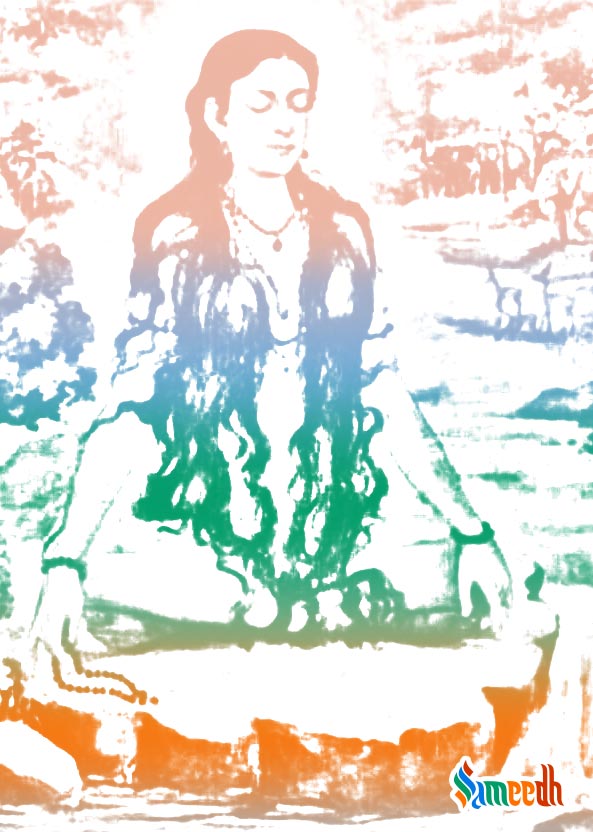Gargi possessed exceptional brilliance and became knowledgeable in the intricate concepts of all four Veds hence; she was referred as ‘Rishi Gargi’. She was also accorded with the designation of ‘Brahma Vadini’ and was regarded as being one of the Navaratnas at King Janak’s cour

Gargi was the daughter of Rishi Vachaknu and the descendant of the renowned Rishi Garga. Hence, she was named as Gargi Vachaknavi in the honour of these two notable figures. She was fascinated with Vedic literature and philosophy since she was a child.
However, her mother was not happy with her academic pursuits. She had closely experienced how a scholar had become so involved in spiritual texts that he forgot about normal life as a homeowner. Therefore, Gargi’s mother wanted her to get married and settle down, instead of studying.
Gargi, on the other hand, had more academic and philosophical ambitions in mind. She had a strong desire to learn the Veds and Purans. She possessed exceptional brilliance and became knowledgeable in the intricate concepts of all four Veds. Several scholars who aspired to be her academic equivalents could not really surpass her proficiency in this area. Due to her immense knowledge about Veds and Purans she was referred as ‘Rishi Gargi’, which is well described in the ‘Gruh Sutra’ of the Rigved. She revealed several of the Rigved’s mantras through her intense meditation. Various Upanishads including the Chandyog Upanishads have inscribed Rishi Gargi’s esteemed philosophical concepts.
Her command over the philosophy and concepts of the Veds earned her significant recognition and respect. She took part in Brahma Yagyas and conducted lectures, due to which, she was accorded with the designation of ‘Brahma Vadini’. The fact that she was regarded as being one of the Navaratnas at King Janak of Mithila’s court was a testament to her eminence.
According to the Brihadaranyak Upanishad, King Janak of Mithila once chose to organize a Rajsuya Yagna. He invited all the renowned and scholarly monarchs, rulers, and Rishis to participate in philosophical debates at this Yagna. A great amount of well-known sages from all throughout the country arrived. The King declared that, whoever was most informed about the Brahman would be given the reward of one thousand cows, each with a horn laden with 10 gms of gold.
Rishi Yajnavalkya was regarded as the most learned of them all. He was also invited to participate in the prestigious assembly. Upon knowing this, many scholars and sages, lost their confidence and did not participate in the debate. Rishi Gargi was one of the only eight great Rishis, who dared Yajnavyalka for the debate. The great Rishis questioned Yajnavyalka one after the other, asking him tough questions regarding the Brahman, only to lose in the end.
When it was Gargi’s turn, she began probing him on metaphysical realms of being and the soul’s immortality. Gradually, she moved on to more practical matters, such as the environment of the world and the roots of its own existence. Gargi questioned Yajnavyalka about the Cosmos, the seting of the sun, the celestial bodies, and the deities like the Indra and Prajapati, for a prolonged duration of their debate.
Gargi challenged Yajnavalkya further, after he answered her queries, urging him to disintegrate the complexity of the universe some more. Yajnavalkya finally called an end to the discussion, stating that Gargi would lose her mental equilibrium, had he answered her questions any further.
Thus, Gargi admitted that no one has the intellectual prowess to question or challenege Rishi Yajnavalkya, and gracefully accepted her defeat. However, her chain of questions, when combined with Yajnavalkya’s answers, resulted in the formation of major Vedic religious doctrines.